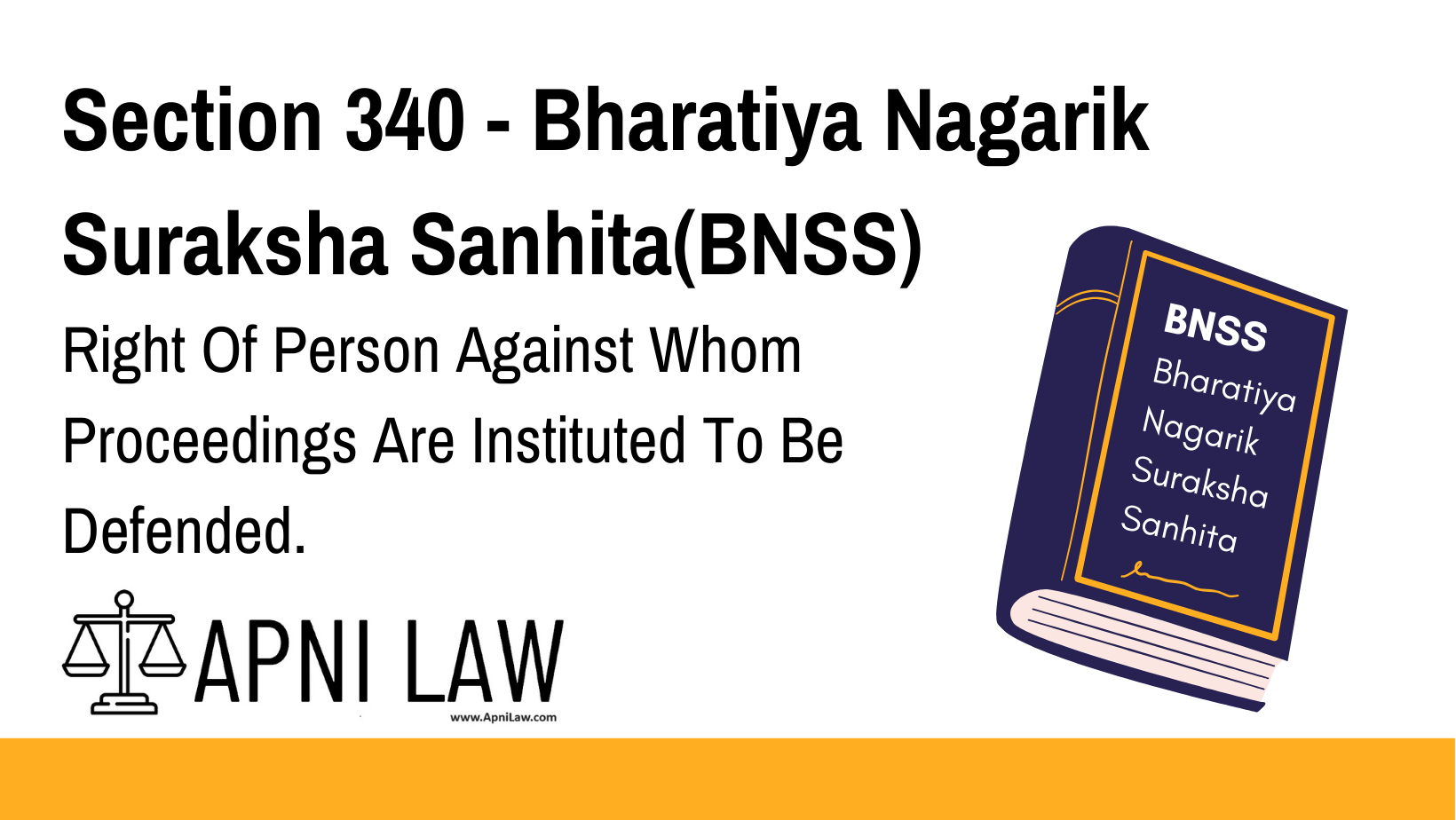Code: Section 340 BNSS
Right to be Defended by an Advocate
340.
Any person accused of an offence before a Criminal Court, or against whom proceedings are instituted under this Sanhita, may of right be defended by an advocate of his choice.
Explanation of Section 340 BNSS
Section 340 of the Bharatiya Nyaya Sanhita (BNSS), 2023, guarantees every accused person the fundamental right to legal representation. This provision upholds the principles of natural justice and the right to a fair trial.
Key Provisions of Section 340 BNSS
- Right to Legal Representation
- Every accused person facing a criminal charge in court has an absolute right to be defended by an advocate of their choosing.
- Applicability to All Criminal Proceedings
- This right applies to all criminal cases under the BNSS.
- It includes both trials and preliminary proceedings.
- Choice of Advocate
- The accused has full freedom to select their own lawyer without interference from the court or prosecution.
- Legal Aid for the Indigent Accused
- If an accused cannot afford legal representation, they are entitled to free legal aid under Article 39A of the Indian Constitution.
Illustrations of Section 340 BNSS
Example 1: Accused Hiring a Private Lawyer
A person charged with theft decides to hire a well-known criminal lawyer to represent them in court. The court cannot prevent them from doing so.
Example 2: State Providing Legal Aid
A daily wage laborer accused of a crime cannot afford a lawyer. The court appoints a public defender to represent him free of cost under legal aid provisions.
Example 3: Denial of Right to Legal Representation
If a court refuses to allow an accused to be represented by a lawyer of their choice, it would be a violation of Section 340 BNSS and could lead to the trial being declared unfair.
Common Questions and Answers on Section 340 BNSS
1. Can an accused be forced to represent themselves in court?
- No. Section 340 BNSS guarantees the accused the right to be defended by an advocate.
2. What happens if an accused cannot afford a lawyer?
- The court is required to appoint a public defender or provide legal aid to ensure fair representation.
3. Can the court deny an accused their chosen lawyer?
- No, unless the lawyer is disqualified from practice or engaged in a conflict of interest.
4. Is this right applicable in all cases?
- Yes, the right to legal representation applies to all criminal proceedings under BNSS.
5. What if an accused voluntarily refuses legal representation?
- If an accused chooses to represent themselves, they must explicitly state their decision in court.
Conclusion
Section 340 BNSS reinforces the fundamental right of every accused person to be represented by legal counsel. This provision ensures fair trials, upholds natural justice, and aligns with the constitutional mandate for legal representation.
For legal insights and expert opinions, visit ApniLaw today! 🚀








